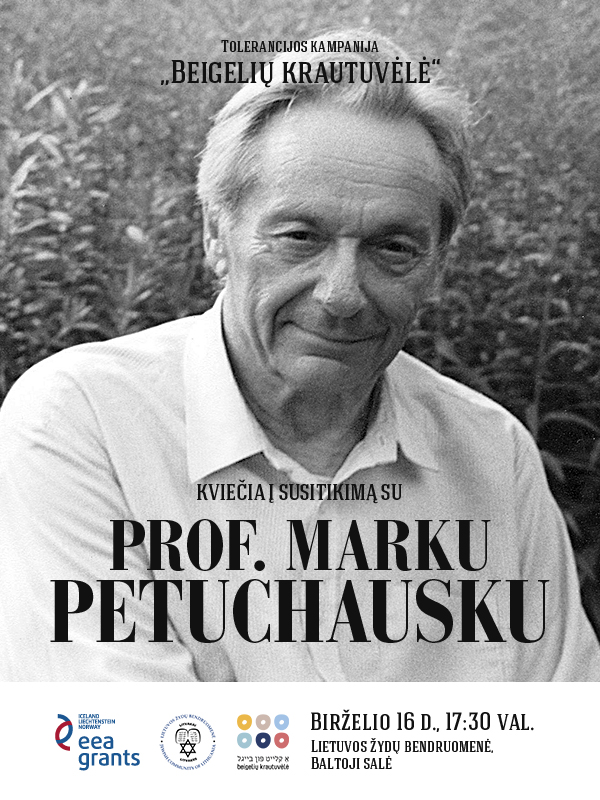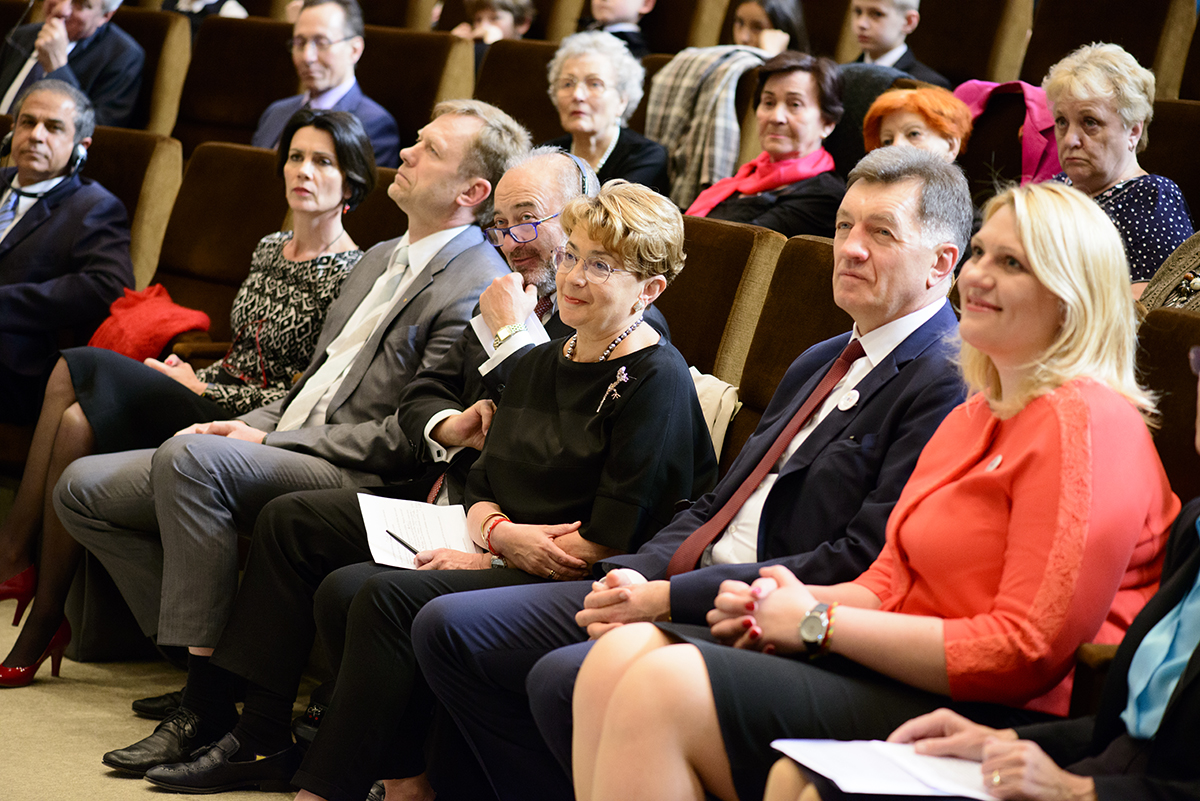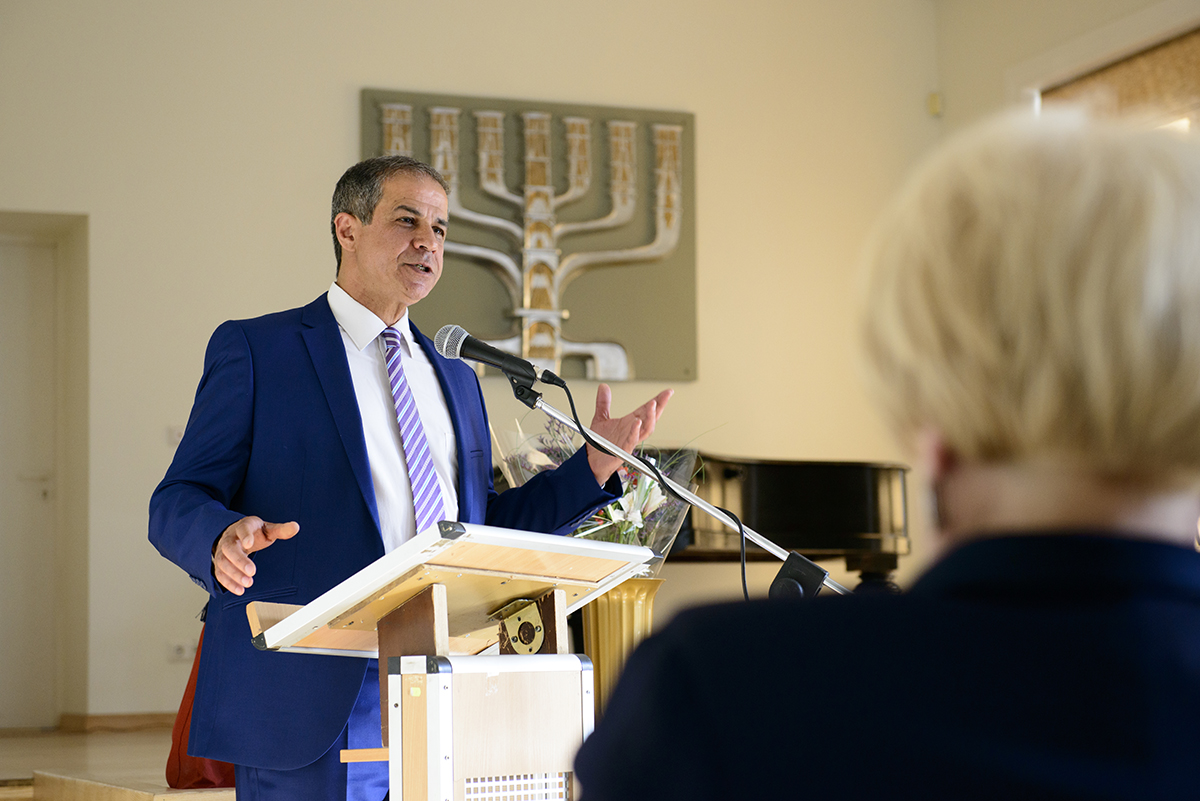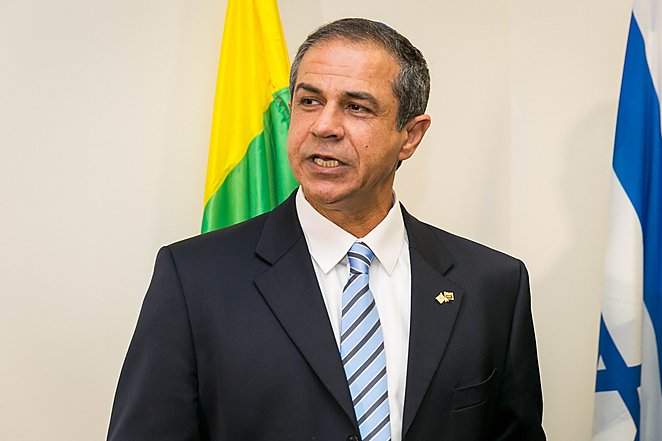Cultural Heritage Department director Diana Varnaitė, deputy cultural minister Romas Jarockis and Lithuanian Jewish Community chair Faina Kukliansky have travelled to Alytus (Olita) in the south of Lithuania to meet the new municipal administration and discuss the fate of the Alytus synagogue. The delegation included Government representative Lina Saulėnaitė and Jurgita Bieliūnienė, a representative from the parliament’s Education, Science and Culture Committee.
The issue of the synagogue comes up often, but very few actual steps have been taken. City mayor Vytautas Grigaravičius said there was a project for how to develop the public use of the synagogue before, but now this idea needs to be examined more deeply. Museum exhibits might be housed at the rabbi’s house next to the synagogue.
Deputy minister of the Ministry of Culture Romas Jarockis said several funding sources could be used to finance the renovation of the synagogue. If there was approval from the Committee of the Regions, in the 2014-2015 funding period about 85 percent of funding for the synagogue could come from the EU, and 15 percent from the municipality. The deputy minister said the renovation of the cultural heritage site would have to be useful to the local community, so the renovation wouldn’t culminate in empty buildings but that they would become instead lively public venues. Cultural Heritage Department director said renewal of the Alytus synagogue is not only a great responsibility, but would provide as well a new opportunity to join the European Route of Jewish Heritage. Lithuanian Jewish Community chair Faina Kukliansky said the time has come for there to be a site in Alytus not just for the mass murder of Jews, but also a place for Jewish life.






























